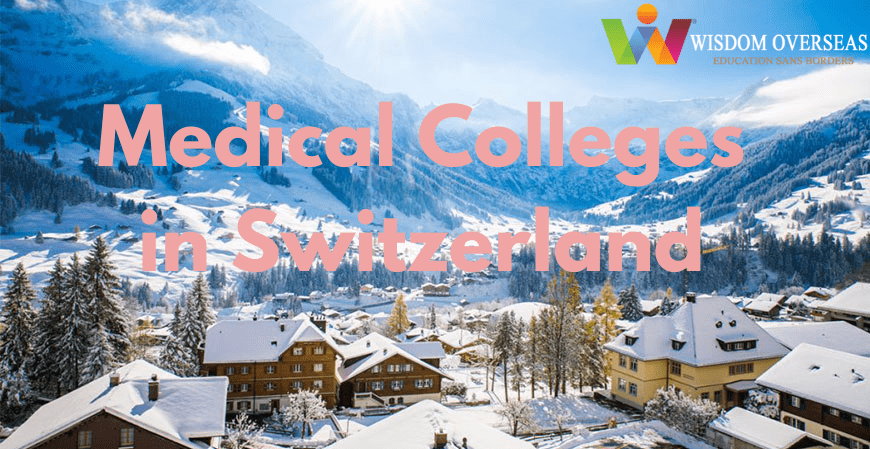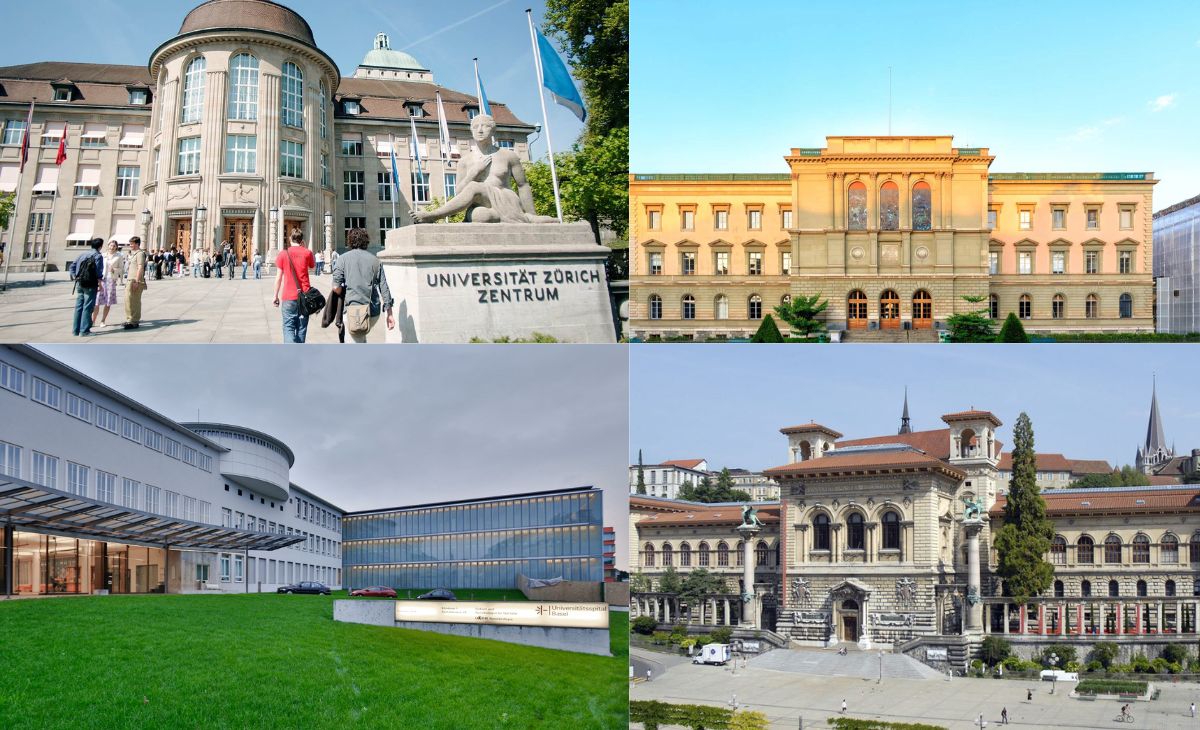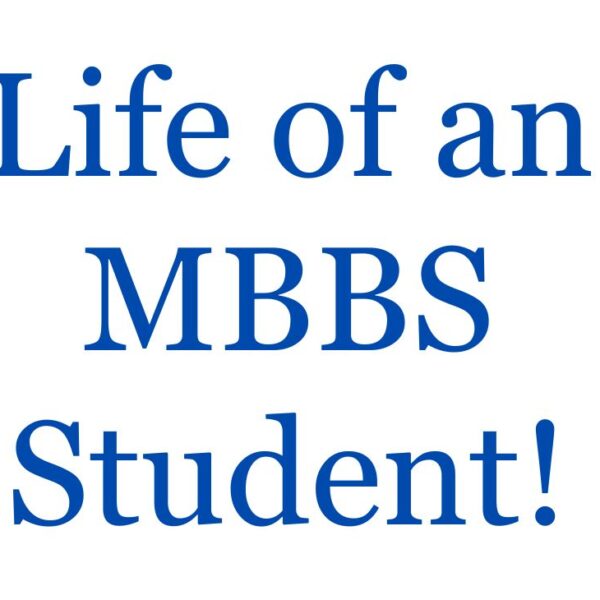
Medical Colleges in Switzerland
Switzerland is one of the best options to pursue medicine for global aspirants. Nowadays Switzerland’s medical studies are gaining a lot of attention. Due to the educational standards, convenient way of living, and other methods, the interest in studying MBBS in Switzerland has been rising increasingly. Yearly the number of Indian students moving to Switzerland for MBBS is increasing, as per the reports.
MBBS in Switzerland: Course Highlights
Switzerland is renowned for its highly sophisticated education system, attracting many students seeking to pursue medicine. The country’s medical universities and colleges have gained popularity among international students due to their diverse scholarship offerings.
These scholarships are funded either by the government or private organizations, providing ample opportunities for aspiring medical students to pursue their academic and professional goals in Switzerland.
MBBS in Switzerland – Highlights
Duration of the course: 3 years
Mode of instruction: French, German
MBBS Specializations in Switzerland
- Molecular Health Sciences
- Neurosciences
- Human Movement Science and Sport
- Medical Engineering
- Medical Imaging
- Medical technology
MBBS in Switzerland: Course Curriculum
| Year | Curriculum |
| First Year | Physics, Chemistry, Biology, and Organ Systems |
| Second Year | Morphology and function |
| Third Year | Components of the disease |
MBBS in Switzerland: Top Universities
| University | QS World University Rankings |
| University of Zurich | 70 |
| University of Bern | 119 |
| University of Basel | 138 |
| University of Geneva | 105 |
| University of Lausanne | 176 |
MBBS Intakes in Switzerland
In Switzerland, the application process for universities does not have fixed intakes but rather follows two main cycles: the consumption in the fall or autumn and the springtime.
Fall Intake: This intake typically lasts from September to February. The application deadline is typically on March 1st, and the admission cycle for this consumption starts in June.
Spring Intake: February marks the start of the spring intake, which lasts through June. Students are normally expected to submit their programs by the 31st of August for the admission cycle for this consumption, which began in November.
These intakes provide students with flexible options to apply for various programs at their preferred Swiss universities throughout the year.
MBBS in Switzerland: Eligibility Criteria
Candidates must fit the following qualifications to observe for an MBBS in Switzerland:
- Must possess a valid passport.
- Hold a bachelor’s degree with a minimum of three years of study from an accredited institution.
- Meet the linguistic requirements of the college on which they are concentrating. Performing proficiency tests in both German and English may be part of this.
- For German language proficiency, applicants may need to take the TestDaF.
- For English language proficiency, the university may require IELTS or TOEFL scores.
- Pass the National Eligibility and Entrance Test (NEET) test with a qualifying score.
Note: Some specific institutions of higher learning, including the educational institutions in Basel, Bern, and Chur, may have further specifications, such as passing an entrance test.
Interested students can become suitable to apply for MBBS programs in Switzerland by meeting those requirements.
Admission requirements for MBBS in Switzerland
- NEET report cards
- Educational Transcripts
- Copy of Passport
- Letter of Recommendation (LOR)
- English language proficiency scores (IELTS/ TOEFL)
- CV or Resume
- Statement of Purpose (SOP)
Who Can Apply for Studying Medicine in Switzerland?
Applications for clinical programs at Swiss universities are only accepted from the most favorable overseas firms. These include:
Lichtenstein residents.
- Foreign nationals with Swiss or Liechtenstein residence permits, or their partners.
- Foreigners from European countries, Norway, and Iceland are permitted to own Swiss artwork.
- Foreign nationals with Swiss residency permits whose parents are citizens of Iceland, Norway, or the European Union.
Foreign citizens who meet any of the following conditions:
- If you’ve had a Swiss work permit for 5 years without a break, and you have a Swiss high school diploma or an equivalent diploma from a Swiss region, Liechtenstein, a federal vocational school, or a nationally recognized specialized program, then you meet the requirements.
Medicine in Switzerland: Who can opt?
Switzerland offers an ideal opportunity for aspiring medical students who meet the country’s strict admission requirements. If you fulfill these criteria, you can confidently apply for medical courses in Swiss universities.
Also, having proficiency in languages such as French, Italian, or German is beneficial, as some institutions conduct their tests for qualification in these tongues. Moreover, this pathway is well-suited for persons prepared to face intense competition for the limited university seats available in Switzerland.
MBBS in Switzerland: Application Process
The qualifying exam is held every year in July. The exam is administered in German at the universities of Bern, Lucerne, Basel, Suhr, Chur, Zurich, and St. Gallen; it is administered in French at Fribourg; and it is administered in Italian at Lugano.
Cost of Living in Switzerland
In Switzerland, the cost of living includes the cost of housing, utilities, transportation, and food. The overall cost may also vary based on the city you choose to stay in. The typical costs for each class are as follows:
| Category | Costs [Approximately] |
| Accommodation costs | |
| On-campus accommodation | € 450 to 800/month |
| Off-campus accommodation | € 700 to 1,200/month |
| Food expenses | € 400 to 550/ month |
| Transportation costs | € 55/ month |
| Other costs | |
| Health insurance | € 250 to 330/year |
| Books | € 100/year |
Please note that these figures are average estimates and may differ based on the specific city and individual lifestyle choices.
MBBS in Switzerland: Scholarships
ETH Zurich Excellence Scholarships:
ETH Zurich provides two types of scholarships for master’s students: the Excellence Scholarship, which covers both tuition and living costs, and the Master Scholarship, which offers a partial stipend along with the opportunity for an apprenticeship.
Graduate Institute Geneva Scholarships:
Candidates at the Graduate Institute Geneva can choose between full financial aid worth CHF 10,000 (INR 8 lakh) each month and larger full scholarships for CHF 20,000 (INR 16 lakh). These financial aids are given solely based on academic achievement.
Practice as a Doctor in Switzerland after MBBS
Outstanding activity possibilities are provided by the MBBS diploma in Switzerland. Students must pass the Swiss Federal Licensing exam after completing the six-year program to become licensed medical practitioners and practice in hospitals.
Under the tutelage of the Swiss Institutes for Postgraduate & Similar Learning in Medicine, new doctors typically work as assistant physicians in postgraduate publications for three years. They are qualified to take a consultant exam after this course.
In Switzerland, doctors make an average salary of CHF 82,404 a year or approximately INR 66-65 lakh. This translates to doctors earning CHF 42.26 (or around INR 3,592) per hour.






